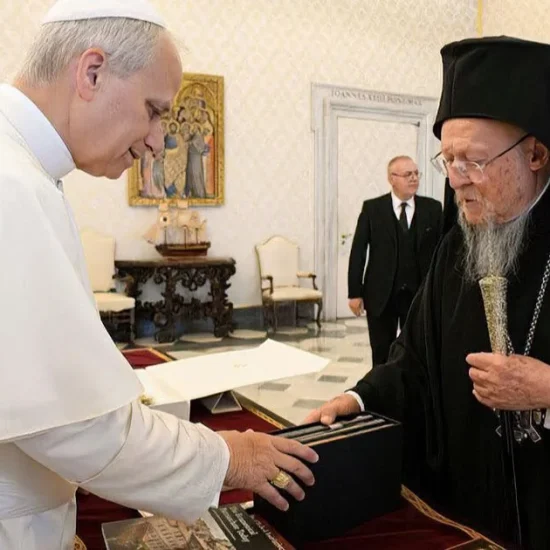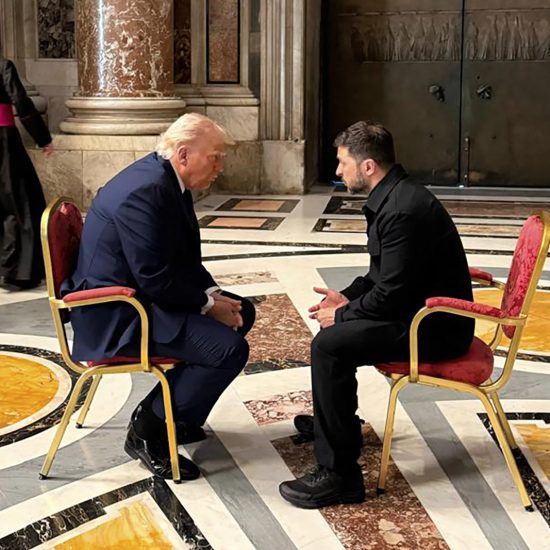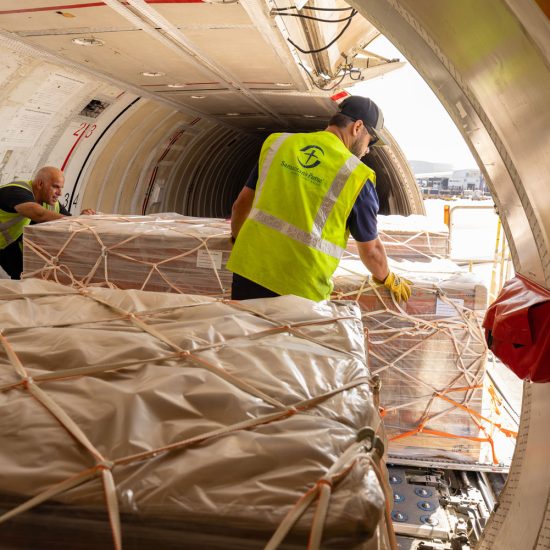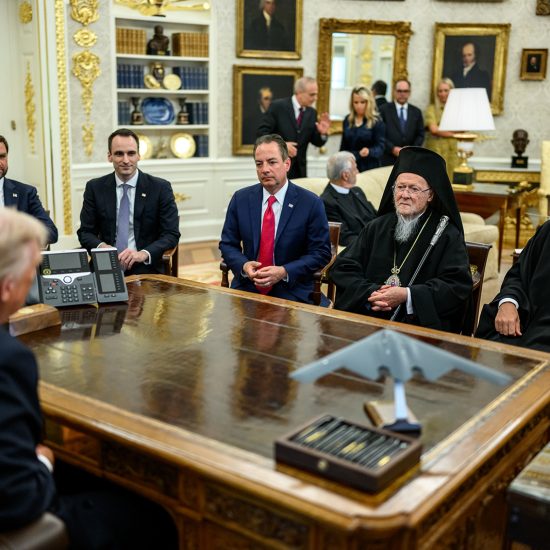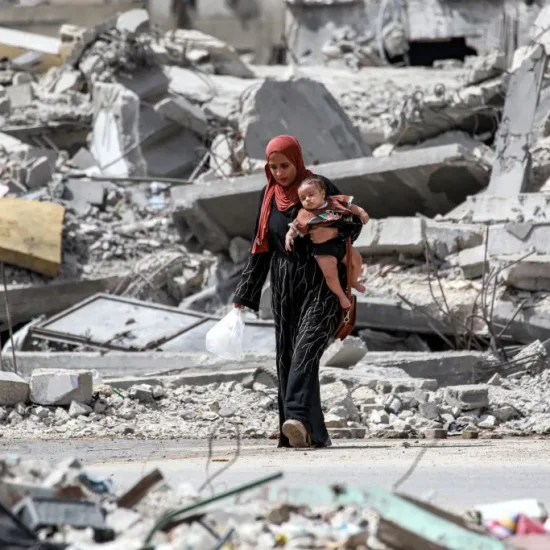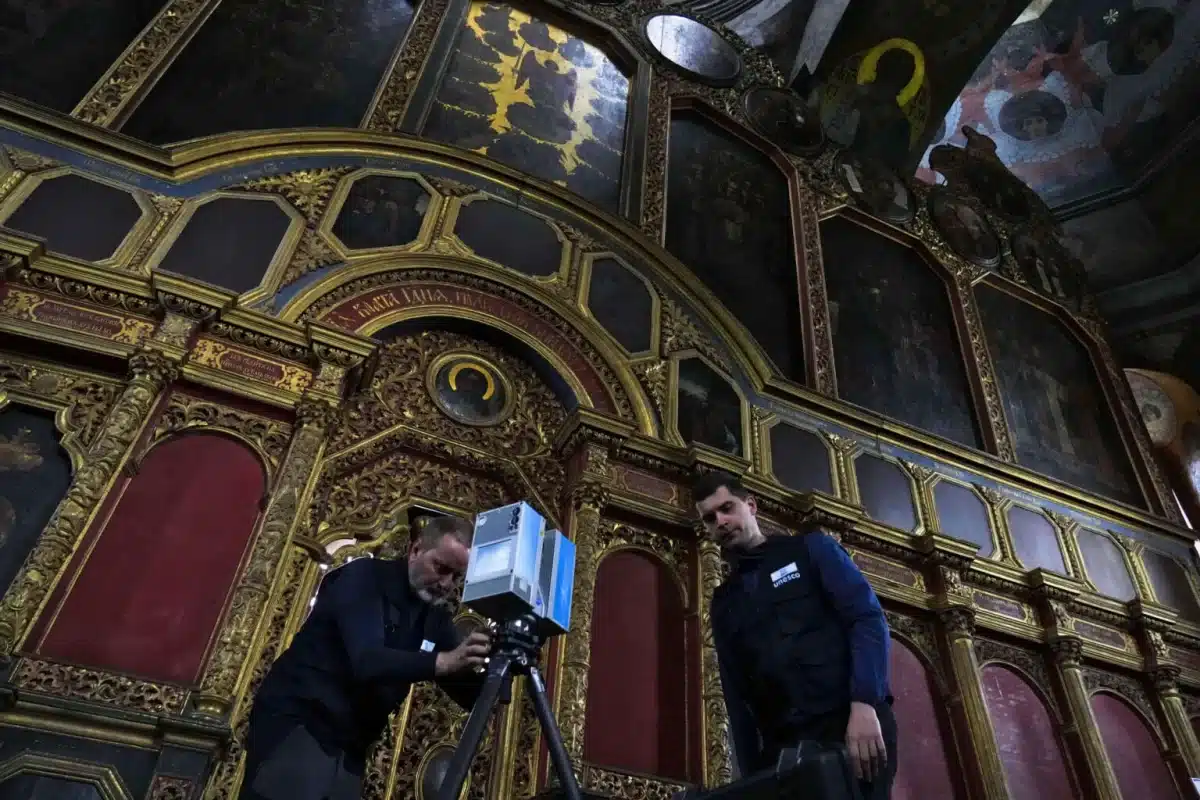
KYIV, Ukraine (AP) — Under the plaintive painted eyes of the holy, a volunteer team of two United Nations-backed engineers watched as a whirling laser took a million measurements a second inside Kyiv’s All Saints Church.
The laser swept quickly across the church, part of the Kyiv-Pechersk Lavra, while taking a series of incredibly high-resolution photographs.
Those images will be stitched together with navigational data to create a perfect three-dimensional rendering of the holy site, part of a project to protect and preserve historic places across Ukraine now in as much in danger as its people amid Russia’s war on the country.
“It’s a critical moment,” said Chiara Dezzi Bardeschi, who oversees Ukraine for UNESCO, the U.N.’s cultural agency. “If it’s not protected now, we really risk that this heritage is lost forever.”
Since Russia launched the war in February 2022, at least 259 cultural and historic sites have been damaged by the fighting, according to UNESCO. They include religious sites, museums, monuments and libraries. It remains common to see statues across the country surrounded by sandbags or scaffolding to protect them from airstrikes or other attacks.
Meanwhile, Ukraine is pouring money and the donations of Western nations backing it into its military as it tries to claw back more territory as the summer fighting months begin. That leaves little money for preservation of its historic sites, which already have faced cycles of destruction in the past from czarist Russia, the Nazis during World War II and the Soviet Union in the decades after.
That’s where the work of Emmanuel Durand, a French engineer based in Geneva, and Serhii Revenko, a Ukrainian architect who has taken 3D models of other sites during the war, comes into play. In recent days, the two men, who volunteer through UNESCO, worked at All Saints Church, built between 1696 and 1698 at the Lavra, also known as the Monastery of the Caves.
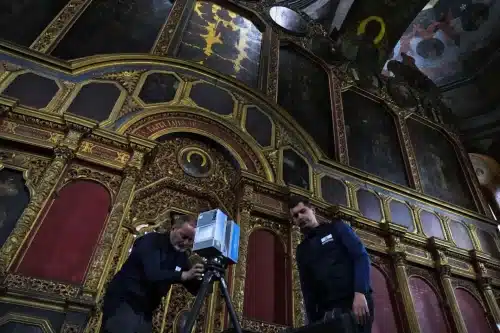
Volunteers Emmanuel Durand, left, and Serhii Revenko set up a high-tech scanner at the All Saints Church at the Kyiv-Pechersk Lavra in Kyiv, Ukraine, Sunday, June 11, 2023. Using high-tech laser gear, a United Nations-backed team is scanning Ukraine historical sites to preserve them amid Russia’s war on the country. (AP Photo/Jon Gambrell)
The men used a donated device called a Zoller & Fröhlich Imager 5010X, which has two rectangular boxes connected by a high-resolution, rapidly spinning camera in the center. The imager, as well as required software and supporting equipment, together cost about $70,000.
The two placed the imager atop a tripod, then slipped away from it as the device measured the heights underneath the churches’ golden domes.
The camera then whirled to life, spinning around to capture the inside so closely that even the textures of the brushstrokes will be recorded.
“If due to the war, the church would be bombed in the next week or next month, it would be terrible, of course, but at least we would have this digitalization and it would help a lot in rebuilding the church,” Durand said.
That danger is real. Revenko earlier shot 3D images of the Library of Youth in Chernihiv, about 130 kilometers (80 miles) northeast of Kyiv. That library, opened in 1902 in a building bearing the style of the Gothic revival with pointed arches, was targeted by a Russian airstrike on March 11, 2022.
The 3D image shows the massive hole torn into the side of the building, debris scattered everywhere. It also shows the depth and the power of the bomb that struck the site. That can be vital for historians — as well as for prosecutors or investigators — who later want to see such scenes long after any repairs.
“This is important to preserve because what the enemy and the Russians are trying to destroy is who we are and what our identity is,” Revenko said. “Our identity really is the heritage and culture that we can preserve and give to the next generation.”
The men began their work at the All Saints Church in part because of its relative safety during the war. The Lavra’s gates bear the blue shield emblem of the 1954 Hague Convention, in theory providing the protection of international law to the site.
But the site on a hill overlooking the Dnieper River is only a few kilometers (a mile) from Ukraine’s presidency and other buildings in Kyiv that could be targets for Moscow. In recent weeks, Kyiv has come under repeated missile and drone attacks by Russia, raising the risks of a strike or damage from falling debris.
Russia’s embassy in Washington did not respond to a request for comment about its targeting practices regarding historical sites.
Durand and Revenko also traveled to the Ukrainian city of Mykolaiv, far closer to the front lines, to create images of other cultural sites.
“As an architect, it’s like rediscovering your country, really, and rediscovering your culture,” Revenko said, gesturing toward the artworks within the All Saints Church.
For Durand, who also volunteered at the 2020 Beirut port explosion and the recent earthquake that struck Turkey, doing the 3D scanning in Ukraine offers him a chance to use his talents when people are in need.
“I’m not a doctor. I cannot go to Kherson or places and heal people. That’s not my skill,” Durand said. “I’m not a good cook. I cannot give food, but I’m an engineer. I have this 3D skill and other structural assessment skills that I give.”
___
Follow Jon Gambrell on Twitter at www.twitter.com/jongambrellAP
___
Follow AP’s coverage of the war in Ukraine at https://apnews.com/hub/russia-ukraine


